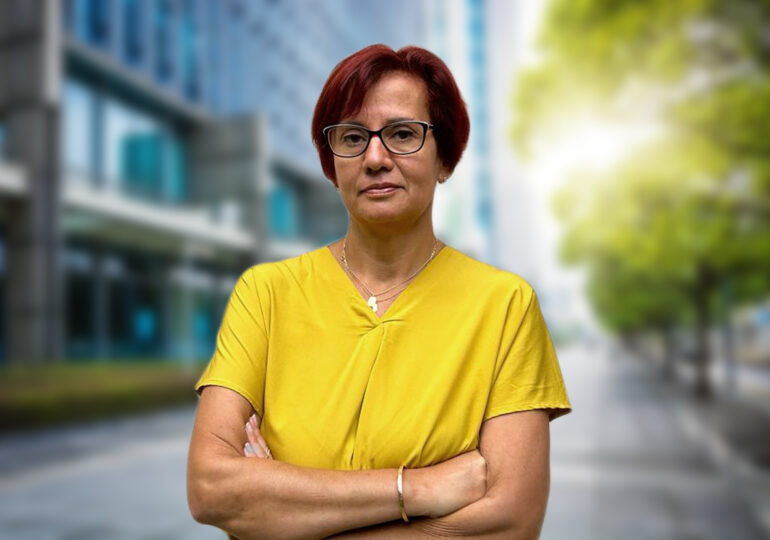People affected by the tragedy of the floods are certainly in a terrible situation and need immediate help – water, food, temporary housing, schools, and kindergartens.
But I fear even more that it only hinders a lagging education, guilty of the vulnerability in which people are found at every major attempt and, like the rush of officials, represents nothing more than an electoral exploitation of misfortune.
- Romania under water: Nightmare images. 4 people have died, hundreds are stranded. Politicians' commotion (Video & Photo Gallery)
- Day 2 of the deluge - Death toll rises to 6, two people missing. 5,400 homes affected
The presence of the prime minister, the minister of Interior, and the Environment in the disaster area is natural because, in addition to empathy, according to the capabilities of each official, it should provide a bit of assurance that the intervention is at the highest possible level. It should be a signal for both those intervening and the victims.
The electoral vampirism of suffering
That the prime minister is also a candidate, that he uses it for electoral purposes is true, but this is also a consequence of the position, which in a campaign often costs points.
However, I do not understand what Nicolae Ciucă was doing in Galați County. To whom and for what purpose his presence was useful, for which it was necessary to organize the official trip, with all the necessary hassle.
Yes, it was delicate for Mr. Ciucă to launch his candidacy at such a moment, but with decency and a little communication knowledge, the moment could have been overcome. Especially since the Deputy Prime Minister-Minister of Interior directly involved in coordinating the intervention is, at least theoretically, from the PNL.
Instead, Mr. Ciucă was pushed to capitalize on the drama in Galați, to put his head in the picture, to show up at the National Convention in electioneering attire amidst disaster. The exploitation of tragedy is felt and costs dearly.
It was also a good visibility moment for the collusion meant to help Mr. Ciucă reach the final with Marcel Ciolacu. Otherwise, I do not understand why Mr. Ciolacu flew him in a helicopter and made statements together with his rival in the elections, who didn't even have any other task than the purely electoral one to be there.
Do only fools pay mandatory insurance?
If the prime minister's visit was natural, what Mr. Ciolacu did afterward is not only electoral and populist, but downright toxic as a model for the future: "I went there to look into their eyes and tell them that I will not disappoint them! There are over 5,000 affected houses. We will rebuild them all!!" From public funds, not personal or PSD's, we understand.
How many of these 5,000 houses had paid the mandatory PAD insurance, intended exactly for compensation for natural disasters, including floods?
Statistics show that only 23% of homes in Romania were insured. So if the area is not an exception, and it doesn't seem to be given the people's reactions, only at most 1,150 out of the 5,000 homes referred to by the prime minister are insured. And generally, the percentage is much lower in rural areas, around 15%.
The owner's investment would have been 130 lei/year, less than 11 lei/month, for homes made of modern materials and 50 lei for those made of adobe.
According to the law, since insurance is mandatory, compliance should have been monitored in the PAID system by the municipality, which should notify and then fine the uninsured.
Based on Law 544, we asked the Slobozia Conachi City Hall how many homes in the commune have concluded PAD insurance, how many notifications have been sent, and how many fines have been imposed for non-compliance. So far, understandably, we have not received an answer, but we are waiting patiently, knowing that a mayor who fines does not receive votes, and Mr. Emil Dragomir has been mayor since 2016.
Uninsured people are compensated by the state from a budget collected from citizens, including from those who have paid mandatory insurance and sometimes even optional additional insurance. What the state should encourage through its policies is this type of responsible behavior, not dependence on the authorities' mercy, all the more generous as the elections draw nearer.
Sure, with the maximum insured value being 20,000 euros, there can be a discussion for those insured about supplementing the amount through more advantageous loans for the rest of the damage. But when the uninsured have the same treatment as the insured, why would anyone pay for insurance? Let the state provide for all of us.
On what criteria do we choose mayors?
People in the area complain that after the 2013 floods, no work was done to reduce the danger. Was a plan in this regard the reason they chose Mr. Emil Dragomir in 2016? Was progress and fulfilling such a plan the reasons they re-elected him twice afterwards?
Asked by the press about such a concrete plan, Mr. Dragomir showed his measure: "I believe that only God can tell us if something happens or not. How am I supposed to know what happens overnight or during the day?". Elected mayor in 2016, re-elected in 2020 and 2024 in an area that had been flooded in 2013.
The question is not whether disasters will occur. They will occur in increasingly violent forms and even where they have not occurred before. These are the effects of climate change. The question is how well we will be prepared to face them. And this depends on how we understand to be responsible at an individual level, but also on the criteria by which we choose our leaders.

